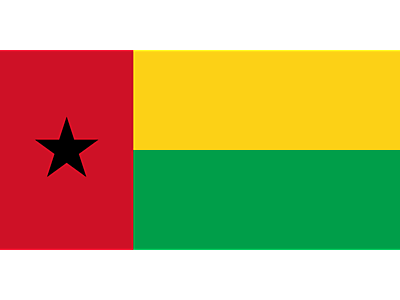The President of the Guinea-Bissau’s Football Federation, Manuel Nascimento, says his country will vote for Morocco staging the 2026 World Cup.
The North Africans must beat a triple bid from Canada/Mexico/United States for the right to stage the event.
“I demand that our votes as Africa are solid and we should not scatter them around when voting time comes.
“The 2010 World Cup was successfully hosted in Africa. We can do it again,” Nascimento told Tidesports source.
Nascimento was recently in Morocco for last week’s inaugural Confederation of African Football (Caf) women’s football symposium.
His comments come after football’s world body Fifa relaxed its rule surrounding 2026 World Cup bids.
Fifa had said that federations could not voice public support for individual bids, but last month new guidance was issued to Fifa member associations which allowed them to back a bid if done so ethically.
Algeria’s Federation president, Kheireddine Zetchi, has also confirmed support for Morocco’s bid, while adding that they would provide help should Morocco ask for it.
Caf president Ahmad has also made it clear that the Morocco bid is a bid for all the continent.
“Africa is a family and has a solidarity culture which we must see during the voting,” said Ahmad.
The Malagasy, who has outlined his support for Morocco before, believes that many African countries do not have the sort of infrastructure that is enabling the North Africans to bid for the tournament.
“Africa has hosted the World Cup once and has continued to participate in many World Cup editions,” said Ahmad.
“So I believe this is the time we should get World Cup hosting in Africa again. I hope Morocco can win the World Cup bid for the sake of our youth.”
Last week, former Fifa president Sepp Blatter said he believed the Moroccan bid should succeed, given the ‘nightmare’ experience of co-hosting that Fifa encountered when the World Cup was jointly staged by Japan and South Korea in 2002.
Both Morocco and the Canada/Mexico/United States must submit their 2026 World Cup bid books by 16 March.
Since none of the bidding nations are eligible to vote, the number of Fifa’s member associations eligible to vote will be 207 rather than 211.
http://www.thetidenewsonline.com/2018/03/14/guinea-bissau-backs-moroccos-bid-for-2026-world-cup/
View Full Post and Comments
A solar power plant with a capacity of between 20 and 30 MW is currently being planned with the support of the World Bank, which is now seeking consultants to carry out a feasibility study for the project.
The World Bank has launched a tender to seek consultancy companies interested in carrying out a feasibility study for the construction of a solar-plus-storage solar park in Guinea Bissau, West Africa.
The international financial institution said the project will have a power range of 20 MW to 30 MW, and that it will aim to stabilize power supply in the country, as well as providing additional lower cost generation.
The feasibility study will represent Phase I of the project, while Phase II will include the launch of a tender for the design and construction of the power plant.
The deadline to submit bids for Phase I is April 10, 2018. The selected consultant is expected to carry out a GIS analysis to assess land constraints and propose up to three sites for project development with input from the local government, the World Bank said in the tender document.
The inclusion of a storage system in the project was conceived to provide grid stabilization, extend power generation to evening hours, and provide ancillary services to the grid, it added. The solar facility will sell power to the national utility EAGB under a long-term PPA.
Guinea Bissau, which has one of the lowest electrification rates and highest electric service costs in Africa has, to date, not seen much progress in the field of solar energy. Currently, it covers around 90% of its demand with imported petroleum fuels and power imports from Senegal.
According to a recent report from the same World Bank, the local government should now concentrate investments on rehabilitating and removing bottlenecks in the existing power network, while also adjusting energy prices to reflect the real economic cost of imported fuels. Furthermore, the report reveals that over half of the installed generation capacity is out of service, and that around 40% of the produced electricity is currently being lost (or stolen) in the distribution network.
According to another recent report from the African Development Bank, the country has only 11 MW of installed generation capacity, almost all of which is represented by conventional thermal generation. “Real capacity is only 8 MW, only 5 MW of which is available 24 hours per day due to the maintenance required and the inability of the electric power utility to obtain the necessary fuel,” the report’s authors stressed.
The amount of energy supplied falls far short of the country’s requirements estimated at 30 MW,” they further explain.
In terms of solar resources, Guinea Bissau has 2,052 kWh/m2 of global horizontal irradiance on average per year.
https://www.pv-magazine.com/2018/04/04/guinea-bissau-plans-its-first-big-solar-plus-storage-project/
View Full Post and Comments

